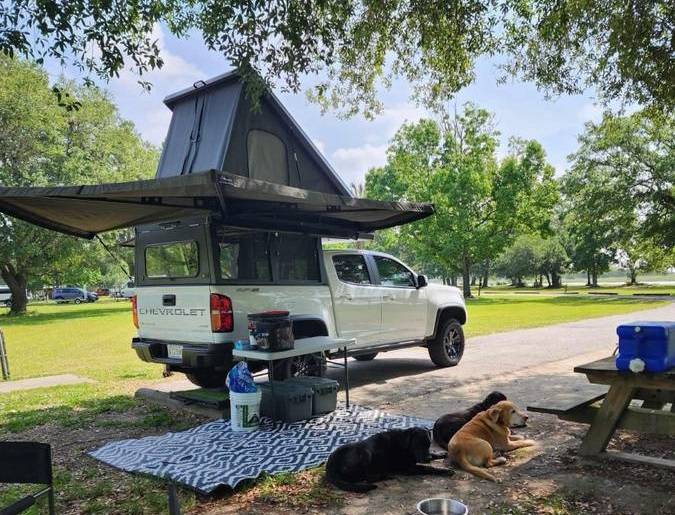
When it comes to choosing the right shelter for your outdoor adventures, the debate between rooftop tents and ground tents often arises. Because each alternative has pros and cons, the choice ultimately comes down to individual preferences and particular requirements. This guide will delve into the intricacies of each, exploring the pros and cons to help you make an informed choice for your next expedition.
Installation and Setup:
Setting up camp quickly and efficiently is essential, especially after a long day of driving or hiking. In this regard, rooftop tents are quite advantageous. Within minutes of being installed on your car’s roof rack, they are simple to unfold and operational. This quick setup is particularly convenient when you’re dealing with unfavorable weather conditions or uneven terrain.
Conversely, ground tents typically require more time and effort to assemble. After locating a good location and cleaning up any debris, you’ll need to erect the tent poles and fasten the stakes. Although not very complicated, this process can take longer than setting up an overland rooftop tent. However, ground tents allow you to select your campsite and camp in locations with restricted or forbidden car access.
Comfort and Convenience:
Comfort is a crucial factor to consider when selecting your camping accommodation, and both rooftop tents and ground tents offer unique advantages in this regard. Overland rooftop tents often provide a more elevated sleeping platform, keeping you off the ground and away from potential moisture, insects, and critters. Furthermore, a lot of rooftop tents have mattresses built right in, making them an even better place to sleep than conventional sleeping pads.
Whereas, ground tents are available in a variety of sizes and forms, so you may select the one that best fits your requirements. Bigger ground tents can enhance your comfort level during outdoor activities by offering plenty of room for standing, changing clothes, and storing equipment. To further improve your camping experience, ground tents also provide you the option to add extra features like vestibules, awnings, and gear lofts.
Weather Resistance:
Unpredictable weather conditions are inevitable when exploring the great outdoors, making weather resistance a crucial consideration for your shelter. In this regard, rooftop tents frequently excel, as their raised design offers greater protection against precipitation, snowfall, and severe winds. Many rooftop tents are made to survive severe weather because of their strong design and long-lasting materials, which will keep you dry and safe during your vacation.
Ground tents also offer decent weather resistance, especially when properly pitched and secured. However, when there is a lot of rain or snowfall, their lower profile leaves them more vulnerable to floods. Furthermore, to improve their ability to withstand weather, ground tents may need extra seam sealing or waterproofing treatments, particularly in older or less expensive varieties.
Mobility and Versatility:
The ability to explore remote and off-grid locations is a hallmark of overland adventures, and your choice of shelter can significantly impact your mobility and versatility. Rooftop tents are inherently tied to your vehicle, offering a seamless integration that allows you to camp wherever your vehicle can go. For overland lovers who value economy and convenience above all else when navigating difficult terrain and visiting far-off places, this setup is perfect.
Ground tents, on the other hand, provide more flexibility in terms of mobility and setup options. They may be utilized independently of your vehicle, allowing you to set up camp away from it if necessary, even though pitching them may take more time and work. This adaptability is useful for bikers, hikers, and backpackers who go into locations where automobile access is restricted or impossible.
Storage and Portability:
There are differences between ground tents and rooftop tents when it comes to packing and storing your camping shelter. Although they are convenient when installed on your car, rooftop tents can significantly increase the weight and height of your setup, which might affect your car’s overall clearance and fuel economy. Furthermore, rooftop tents could take up more room on your roof rack than other accessories or supplies.
Ground tents offer more storage and transportation options. They are perfect for small cars or spaces with a shortage of room since they are simple to put into a carrying bag or storage sack. Additionally, ground tents can be stored separately from your vehicle, allowing you to free up space in your garage or storage area when not in use.
Conclusion:
In the debate between rooftop tents and ground tents, there is no one-size-fits-all solution. In the end, the decision you make will rely on your personal preferences, camping style, and requirements. Whether you prioritize convenience, comfort, versatility, or budget, weighing the pros and cons of each option will help you make an informed decision for your outdoor adventures. Therefore, whether you choose the classic appeal of a ground tent or the enhanced comfort of a rooftop tent, always remember to embrace the adventure and make the most of the great outdoors.







